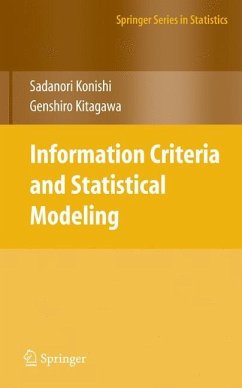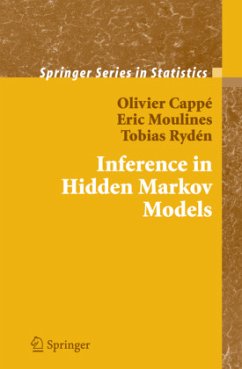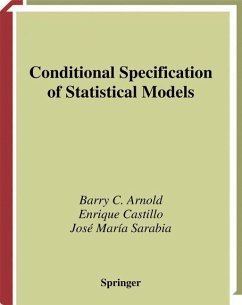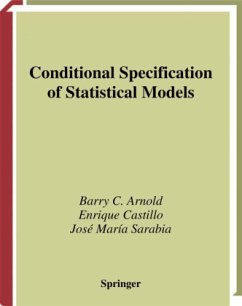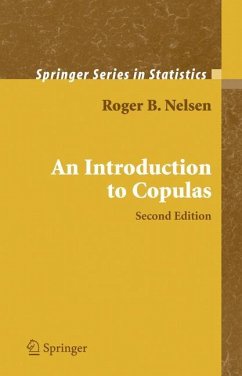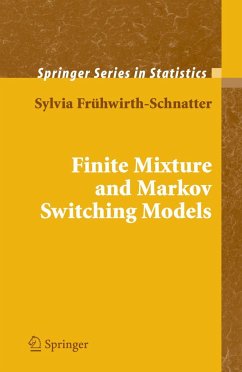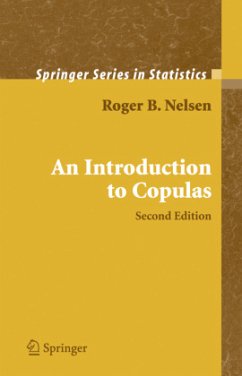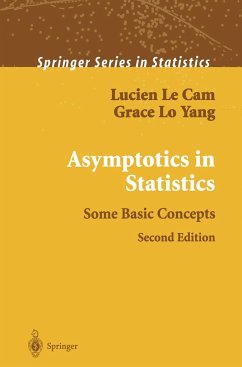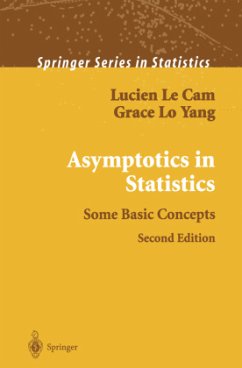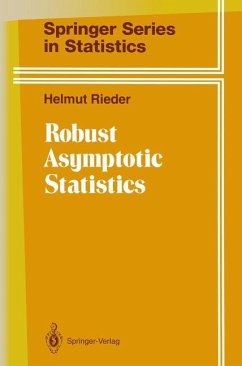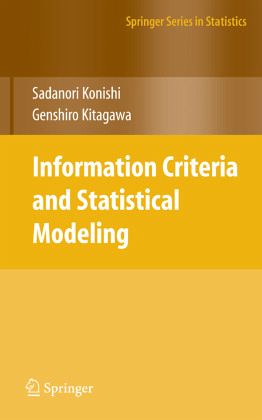
Information Criteria and Statistical Modeling
Versandkostenfrei!
Versandfertig in 1-2 Wochen
75,99 €
inkl. MwSt.
Weitere Ausgaben:

PAYBACK Punkte
38 °P sammeln!
Statistical modeling is a critical tool in scientific research. This book provides comprehensive explanations of the concepts and philosophy of statistical modeling, together with a wide range of practical and numerical examples. The authors expect this work to be of great value not just to statisticians but also to researchers and practitioners in various fields of research such as information science, computer science, engineering, bioinformatics, economics, marketing and environmental science. It's a crucial area of study, as statistical models are used to understand phenomena with uncertainty and to determine the structure of complex systems. They're also used to control such systems, as well as to make reliable predictions in various natural and social science fields.
The Akaike information criterion (AIC) derived as an estimator of the Kullback-Leibler information discrepancy provides a useful tool for evaluating statistical models, and numerous successful applications of the AIC have been reported in various fields of natural sciences, social sciences and engineering.
One of the main objectives of this book is to provide comprehensive explanations of the concepts and derivations of the AIC and related criteria, including Schwarz's Bayesian information criterion (BIC), together with a wide range of practical examples of model selection and evaluation criteria. A secondary objective is to provide a theoretical basis for the analysis and extension of information criteria via a statistical functional approach. A generalized information criterion (GIC) and a bootstrap information criterion are presented, which provide unified tools for modeling and model evaluation for a diverse range of models, including various types of nonlinear models and model estimation procedures such as robust estimation, the maximum penalized likelihood method and a Bayesian approach.
One of the main objectives of this book is to provide comprehensive explanations of the concepts and derivations of the AIC and related criteria, including Schwarz's Bayesian information criterion (BIC), together with a wide range of practical examples of model selection and evaluation criteria. A secondary objective is to provide a theoretical basis for the analysis and extension of information criteria via a statistical functional approach. A generalized information criterion (GIC) and a bootstrap information criterion are presented, which provide unified tools for modeling and model evaluation for a diverse range of models, including various types of nonlinear models and model estimation procedures such as robust estimation, the maximum penalized likelihood method and a Bayesian approach.





